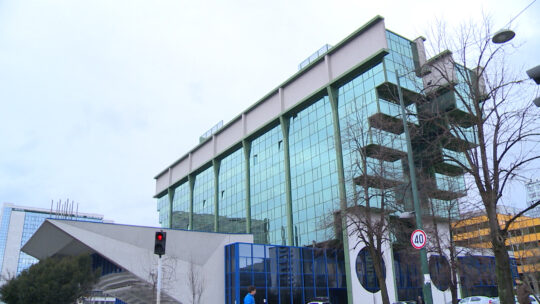The US State Secretary appointing Matthew Palmer for Special Representative for the Western Balkans shows an increased US interest in the region but also might hint at the US trying to resolve the issue of Kosovo as soon as possible with solutions that might be risky, experts in Washington told Voice of America.
The US State Secretary appointed Deputy Assistant Secretary in the Bureau of European and Eurasian Affairs, Matthew Palmer, as Special Representative for the Western Balkans.
“In this role, Palmer will lead our efforts to strengthen U.S. diplomatic engagement in support of peace, stability, and prosperity in the region and focus on the integration of the Western Balkan countries into Western institutions,” a US State Department Press Release said on Friday.
“Following the appointment I would hope for a more clear policy of the US against changing borders (in the Western Balkans) and better coordination with Europe, but I fear that the goal is to hurry up with achieving an agreement before the next US presidential election in November 2020,” said Daniel Serwer, a professor at the John Hopkins University.
He recalled that there are many open issues to consider when talking about the resurrection of the dialogue between Belgrade and Pristina.
“It doesn’t make a lot of sense until the election in Kosovo is over, the new government is formed and a new platform for negotiations has been developed,” he said.
Another expert on the Balkans and lecturer at the John Hopkins University, Edward Joseph, said that there are several reasons for why Palmer’s appointment is significant.
“First of all, it signals that there is an increased US interest and commitment to the Balkans. Appointing a special representative is not a decision that is just made on the fly. The goal is for the representative to enjoy a higher degree of respect because he speaks directly on behalf of the US State Secretary,” Joseph said.
“It’s clear that this shows an intention for the US to have more influence in the region, probably also on the continuous resolving of the problem with Kosovo, among other issues,” he said.
Joseph called Palmer a skilled and committed diplomat who is well versed in the dynamics of the events in the Balkan region and said he may prove to be very effective in promoting US goals.
But he also asked what the ultimate political goals of this US administration are? He asked how the US would deal with the consequences if it supports an often-mentioned option of a territorial swap between Belgrade and Pristina and a demarcation based on ethnicity.
“Is it an attempt to accelerate efforts to achieve a risky solution on dividing Kosovo? If that’s the case, how will the negative aspects of it be resolved? What about the public warnings, not only coming from experts like me, but also from officials in other countries in the region which will have to live with the consequences of such a solution?” he asked.
“How will the opposition by some countries to this solution, especially by Germany, be dealt with? Have any alternatives to a territorial swap been considered, such as the one to support the core of Serb interests which includes the population on the south (of Kosovo) and the property of the Serb Orthodox Church?” he asked.
Joseph said those are just some of the open issues in the region which he said is still poorly integrated and faces “unprecedented Russian interference” while China is investing in it.





